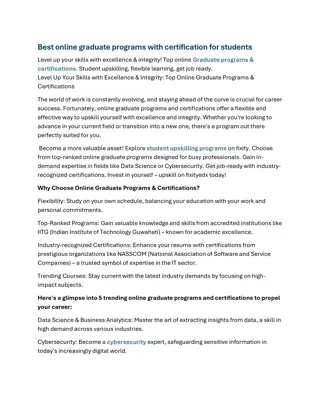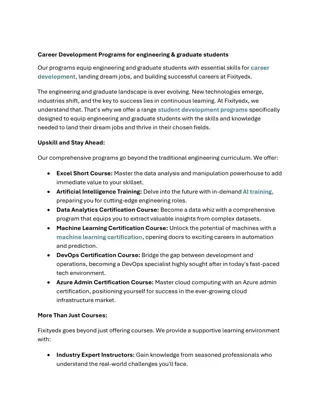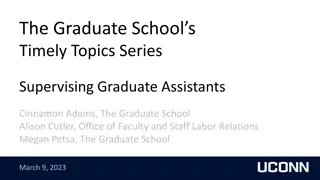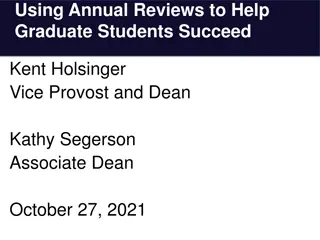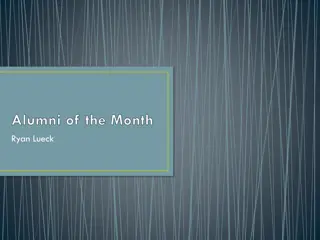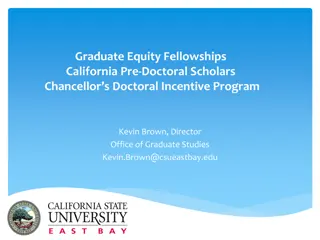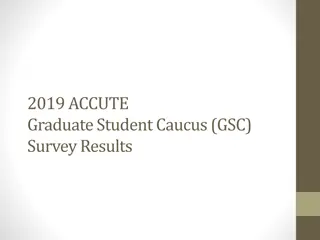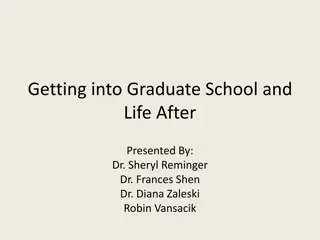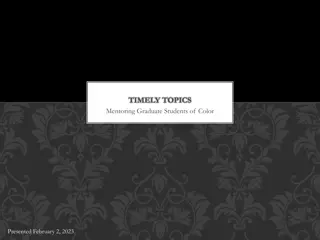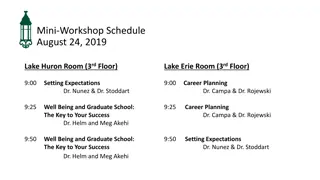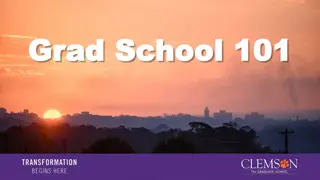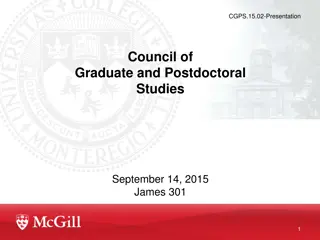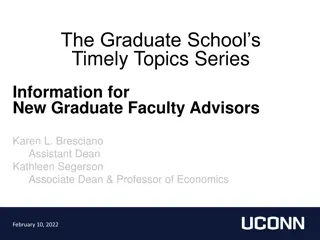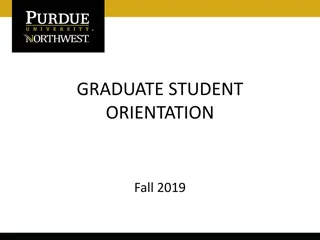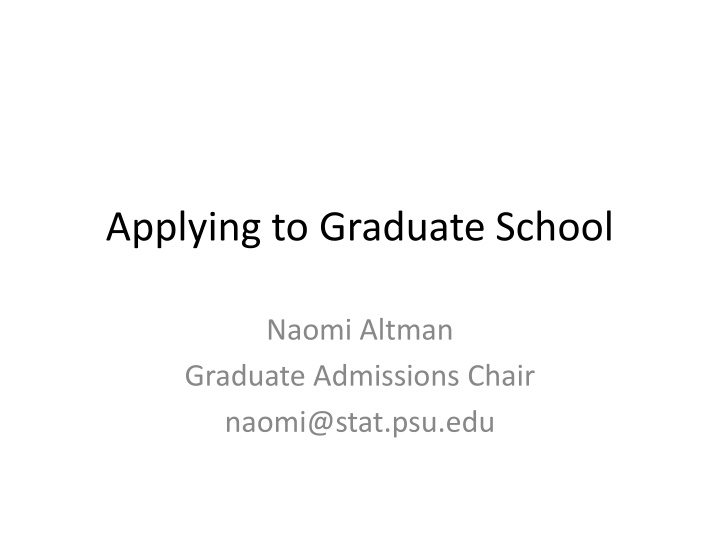
Tips for Applying to Graduate School: Program, Degree, Schools, References
"Learn how to apply to graduate school successfully by choosing the right program, degree, schools, and references. Understand the requirements and what admissions committees are looking for to increase your chances of acceptance."
Download Presentation

Please find below an Image/Link to download the presentation.
The content on the website is provided AS IS for your information and personal use only. It may not be sold, licensed, or shared on other websites without obtaining consent from the author. If you encounter any issues during the download, it is possible that the publisher has removed the file from their server.
You are allowed to download the files provided on this website for personal or commercial use, subject to the condition that they are used lawfully. All files are the property of their respective owners.
The content on the website is provided AS IS for your information and personal use only. It may not be sold, licensed, or shared on other websites without obtaining consent from the author.
E N D
Presentation Transcript
Applying to Graduate School Naomi Altman Graduate Admissions Chair naomi@stat.psu.edu
Summary Pick your program Pick your degree Pick your schools Pick your references What are we looking for? CV Statement of Purpose Cover Letter Miscellaneous
Pick your program Statistics a mix of theory and applications support through teaching and research requires lots of math Biostatistics more applied support through teaching and collaboration Analytics, Data Science ... usually business oriented not much theory may have more computing
Pick your program Statistics a mix of theory and applications support through teaching and research requires lots of math Biostatistics more applied support through teaching and collaboration Analytics, Data Science ... usually business oriented not much theory may have more computing
Pick your Degree Ph.D. M.S. M.A. M.A.S. or M.P.S. BS PhD BS MS PhD
Pick your Degree Ph.D. research oriented 4 - 5 years should get full financial aid need strong math M.S. research and course oriented 2 3 years might get full financial aid need strong math probably optimal job ops & lifetime earnings
Pick your Degree M.A. usually course oriented financial aid?? 2 years M.A.S. or M.P.S. course and consulting oriented no financial aid (but extra year of earning) 1 year (after BS in Statistics or math)
Pick your School read web pages check American Statistical Association for programs in the US and Canada (www.amstat.org) Ask your professors Be realistic apply to X at your level + reach and safety 4.0 in math/stat from PSU reach any top program What are their recent grads doing? How long to graduation?
Pick your References 1) Plan in advance so they know who you are (not just an A grade). 2) Talk with the person so they know your plans and so that you can get an idea of what they will say. 3) Best (MA, MS, PhD) academics who know you, especially if you have done research or been a TA 4) Best (MA, MAS) a couple of academics + a relevant work supervisor
What are we looking for? 1) Good GREs. 2) Good grades (especially in math, stat, econ ...) 3) Good writing skills. 4) Letters that indicate that you are a self-starter and competent. 5) Research or relevant work experience. 6) Computing skills. 7) English skills. 8) Motivation geared to the program you are applying for.
CV Highlight: 1) evidence of quantitative skills 2) relevant work or research experience 3) computing skills (not MS Office, Minitab, SAS, C++, etc) 4) leadership (whether marching band or head of analytics team) 5) data analysis projects, even if done for class Proof Read!
Statement of Purpose Specific about goals and motivation not too specific about particular areas of interest show you read the department web page by mentioning areas of relevant research mentioning 1 professor to do research with is tricky, what if (s)he leaves or retires? Proof Read!
Cover Letter Usually required only to explain special circumstances such as: poor grades gap in program late change in major return to school after working Parsimony works best. Proof Read!
Miscellaneous The best source of information is the Grad Admissions Chair, not your friend already in the program Contact the department before the end of Oct.


